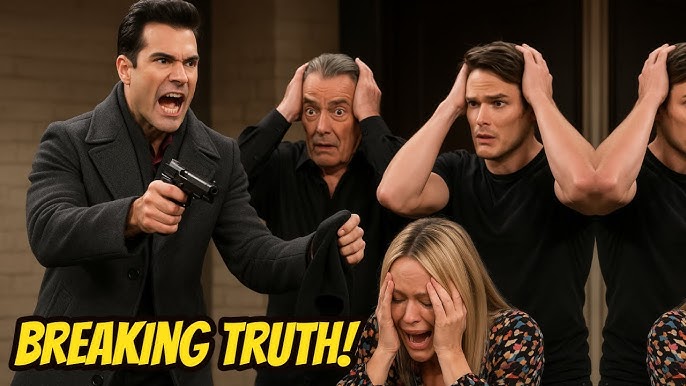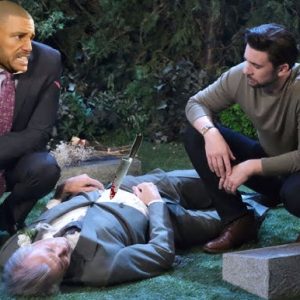In a storyline twist that redefines power dynamics and secrets buried deep within Genoa City, The Young and the Restless delivers a stunning revelation: Cane Ashby, long believed to be quietly pulling strings behind the scenes, is not the mastermind after all. The real puppet master? A figure whose name has circulated only in whispers—Dumas. And his dramatic arrival leaves both Victor Newman and Sharon Rosales completely blindsided.
For weeks, speculation had been mounting. Business deals were being manipulated, alliances shifting without warning, and mysterious decisions were being made that even Victor couldn’t trace. All signs pointed to Cane, whose recent return to the business world had raised eyebrows. Many believed he had reinvented himself as a power player, someone reclaiming control after years of being underestimated.
Sharon, too, had grown increasingly suspicious. Her instinct told her something about Cane’s rise didn’t add up—his moves were too calculated, too perfectly timed. But even she couldn’t predict the truth that was about to come crashing into their world.
It all unravels during a highly anticipated business summit at the Newman Tower—an event drawing Genoa City’s elite, including Victor, Sharon, Devon, Lily, and Nate. The gathering is meant to showcase a major new partnership, with Cane at the center of it all. But as the crowd settles in and the presentation begins, the room is interrupted by a commanding voice from the back.
All heads turn as the doors swing open—and in steps Dumas.
The name alone is enough to send a chill through the air. Rumored to be a brilliant yet elusive strategist with connections to international business circles and shadowy dealings, Dumas had never shown his face in Genoa City. Until now.
He strides confidently into the room, locking eyes first with Victor—who narrows his gaze in immediate recognition—and then with Sharon, whose confusion gives way to shock. Dumas doesn’t waste time. He walks directly to the podium and, without hesitation, declares the truth: Cane is not the boss. He never was.
Gasps ripple through the audience as Dumas explains that everything Cane has done in recent weeks—every acquisition, merger, and strategic maneuver—was directed by him. Dumas had used Cane as a front, a familiar face in Genoa City who could move undetected while the real mastermind stayed in the shadows. Now that the plan has reached its peak, Dumas steps into the light, ready to claim the credit—and the power.
Cane, blindsided by the timing of the reveal, tries to maintain composure. He insists he had autonomy, that he wasn’t merely a pawn. But Dumas’s calm, calculated responses make it clear: Cane was given limited control, and only as much freedom as Dumas allowed.
Victor is not amused. His empire has always depended on control and foresight, and this surprise appearance threatens both. For the first time in a long time, Victor is visibly rattled. He confronts Dumas directly, demanding to know his intentions. Dumas, unflinching, replies that he’s not here to destroy—he’s here to claim a seat at the table that was denied to him long ago.
Sharon, meanwhile, is reeling. She has history with Cane, and the idea that he may have been lying or complicit all along shakes her trust. But it’s Dumas who really haunts her. There’s something about him—something familiar, perhaps tied to a chapter in her past she thought was closed. She watches him closely, torn between caution and curiosity.
The ripple effect of Dumas’s reveal is immediate. The business world of Genoa City shifts overnight. Alliances are called into question. Long-standing rivalries reignite. And for Victor, the challenge isn’t just about business anymore—it’s personal. Dumas represents a new kind of threat: one who doesn’t care about tradition, loyalty, or legacy.
By the episode’s end, it’s clear that the power balance has changed. Dumas isn’t just another outsider—he’s a force with a plan, a history, and perhaps even a deeper connection to the Newman legacy than anyone yet realizes.





